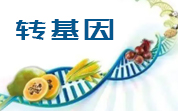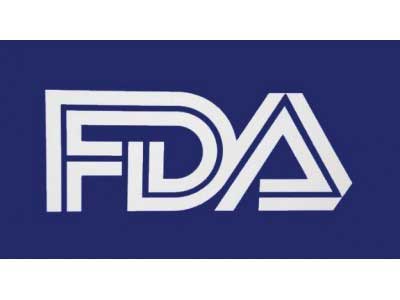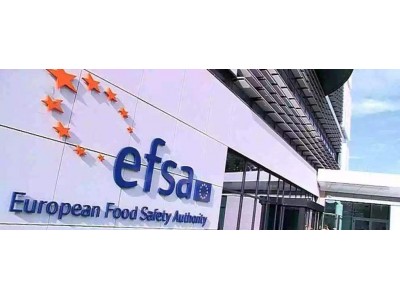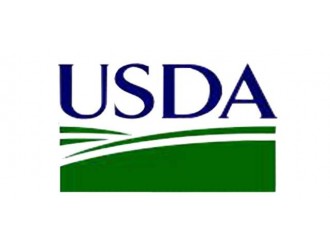гҖҖгҖҖз»ҸиҝҮиҜ„дј°пјҢ专家е°Ҹз»„и®ӨдёәеңЁе»әи®®зҡ„дҪҝз”ЁжқЎд»¶дёӢиҜҘж·»еҠ еүӮеҜ№зӣ®ж Үзү©з§ҚгҖҒж¶Ҳиҙ№иҖ…е’ҢзҺҜеўғжҳҜе®үе…Ёзҡ„гҖӮз”ұдәҺе…¶иў«и®ӨдёәеҸҜд»Ҙз»ҷйЈҹзү©и°ғе‘іпјҢ并且е®ғ们еңЁйҘІж–ҷдёӯзҡ„еҠҹиғҪжҳҜзӣёеҗҢзҡ„пјҢеӣ жӯӨи®ӨдёәжІЎжңүеҝ…иҰҒиҝӣдёҖжӯҘиҜҒжҳҺе…¶еҠҹж•ҲгҖӮйғЁеҲҶеҺҹж–ҮжҠҘйҒ“еҰӮдёӢпјҡ
гҖҖгҖҖFollowing a request from the European Commission, EFSA was asked to deliver a scientific opinion on the safety and efficacy of star anise oil from the fruit (without or with the presence of plant leaves) of Illicium verum Hook.f., when used as a sensory additive in feed and water for drinking for all animal species. For long-living and reproductive animals, the Panel on Additives and Products or Substances used in Animal Feed (FEEDAP) co
nsidered of low co
ncern the use of the additive in complete feed at 0.6 mg/kg for laying hens and rabbits, 1.0 mg/kg for sows and dairy cows, 1.6 mg/kg for sheep/goats, horses and cats, 1.9 mg/kg for dogs and 6.5 mg/kg for ornamental fish. For short-living animals, the Panel had no safety co
ncern when the additive is used at 83.3 mg/kg for veal calves, 73.3 mg/kg for sheep/goats, cattle for fattening and horses for meat production, 83.8 mg/kg for salmonids, 24.8 mg/kg for turkeys for fattening, 18.5 mg/kg chickens for fattening, 33.3 mg/kg for piglets, 40 mg/kg for pigs for fattening and 29.3 mg/kg for rabbits for meat production. These co
nclusions were extrapolated to other physiologically related species. For any other species, the additive was co
nsidered of low co
ncern at 0.6 mg/kg. The use of star anise oil in animal feed is expected to be of no co
ncern for co
nsumers and for the environment. The additive under assessment should be co
nsidered as an irritant to skin and eyes, and as a dermal and respiratory sensitiser. Due to the high co
ncentration of estragole (ЎЭ 1%), the additive is classified as suspected of causing genetic defects and of causing cancer and should be handled accordingly. Since the fruit of I. verum and its preparations are recognised to flavour food and their function in feed would be the same, no further demo
nstration of efficacy was necessary.
гҖҖгҖҖ
жң¬ж–Үз”ұйЈҹе“ҒдјҷдјҙзҪ‘йЈҹе“Ғиө„и®Ҝдёӯеҝғзј–иҫ‘пјҢжңүд»»дҪ•з–‘й—®пјҢиҜ·иҒ”зі»news@www.sqrdapp.comгҖҒь/span>











 ең°еҢәпјҷь/font>
ең°еҢәпјҷь/font>

 欧зӣҹиҜ„дј°иҪ¬еҹәеӣ зҺүзұіMO
欧зӣҹиҜ„дј°иҪ¬еҹәеӣ зҺүзұіMO
 欧зӣҹиҜ„дј°дёҖз§ҚйәҰиҠҪзі–ж·Җ
欧зӣҹиҜ„дј°дёҖз§ҚйәҰиҠҪзі–ж·Җ зҫҺеӣҪжӢҹж’Өй”ҖиӢҘе№ІиӮүзұ»еҸүь/a>
зҫҺеӣҪжӢҹж’Өй”ҖиӢҘе№ІиӮүзұ»еҸүь/a> йІҒе…¬зҪ‘е®үеӨ 37060202000128еҸ¶ь/a>
йІҒе…¬зҪ‘е®үеӨ 37060202000128еҸ¶ь/a>



